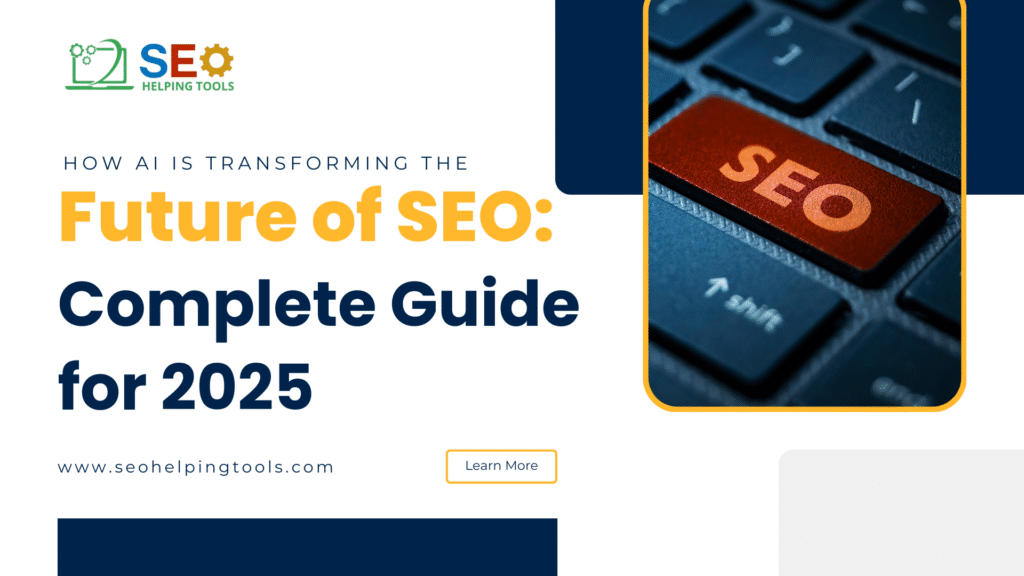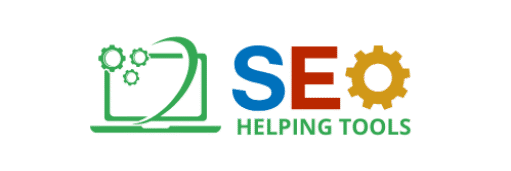
SEO has always been about understanding what users want and delivering it in the best possible way. But in 2025, we’re stepping into a new era—an AI-powered revolution that’s reshaping the SEO landscape faster than we imagined.
So, how exactly is AI transforming SEO? Buckle up, because this complete guide will walk you through everything from tools to tactics, and how to stay ahead of the curve.
What is SEO in 2025?
Search Engine Optimization today isn’t just about keywords or backlinks—it’s about understanding user intent, leveraging smart algorithms, and delivering content that not only ranks but resonates.
Why AI Is a Game-Changer in SEO?
AI brings automation, prediction, and personalization. It can analyze billions of data points in seconds, spot trends, optimize pages, and even write high-performing content.
Let’s dive deeper into how.
Understanding AI and Its Role in SEO
What Exactly is AI in SEO?
AI in SEO refers to the use of machine learning models and automation tools that help analyze search trends, predict user behavior, and optimize content faster than any human.
Machine Learning & NLP
Search engines now understand natural language—thanks to NLP. Tools like ChatGPT, Google’s BERT, and OpenAI’s models make it possible to write content that mimics human thought.
Data-Driven Algorithms and Automation
AI-driven algorithms can automatically audit websites, suggest improvements, and even execute them with little human input.
AI Tools Reshaping SEO in 2025
Content Creation & Optimization
AI-powered tools like Jasper, Copy.ai, and ChatGPT help generate blog posts, meta descriptions, and CTAs that are not just grammatically correct—but SEO-optimized.
Keyword Research Automation
Tools like Semrush AI and SurferSEO use machine learning to find long-tail keywords, questions people are asking, and emerging topics in real time.
SERP Analysis & Predictive Ranking
AI analyzes what’s working for top-ranking sites—like readability, structure, media usage—and helps you replicate success.
On-Page SEO Automation
From generating schema markup to fixing broken internal links, AI tools can do the heavy lifting.
Voice Search Optimization Using AI
As voice search grows, AI helps tailor your content to sound more like how people actually talk.
Impact of AI on Key SEO Areas
Technical SEO
AI Site Auditors and Bots
Tools like Screaming Frog + AI plugins run advanced audits to detect issues, generate sitemaps, and even auto-fix them.
Link Building
Smart Outreach & Backlink Quality Scoring
AI tools analyze backlink profiles, suggest high-value prospects, and personalize outreach emails—at scale.
UX and Core Web Vitals
Real-Time Page Experience Tracking
AI tracks real-time user behavior (scrolls, clicks, time on page) to adjust layout, CTAs, and content dynamically.
The Shift to Semantic Search and User Intent
How Google’s AI (Like RankBrain and BERT) Evolved
These models help Google understand context, not just keywords. That’s why “how to fix a leaking tap” and “fix water faucet” yield the same results.
The Rise of Topic Clusters Over Keywords
Instead of chasing isolated keywords, AI now helps create content ecosystems (pillar + cluster posts) around themes.
AI-Powered Content Strategy
Creating Authority Content with AI
Using AI to research, structure, and optimize long-form content gives creators a serious edge in building topical authority.
Predicting Trending Topics Using AI Tools
Platforms like Exploding Topics and Google Trends + AI integration help identify rising topics before they peak.
AI in Local and Voice Search SEO
Smart Local SEO Optimization
AI scrapes reviews, local signals, and citations to auto-update business listings and recommend location-based content.
Conversational Keywords & Natural Queries
Voice search optimization needs a shift toward “How can I…” and “What’s the best…” type phrases—AI gets that better than we do.
Challenges and Risks of Using AI in SEO
Over-Optimization and Algorithmic Penalties
Too much AI-generated content or link spam? You might trigger a Google penalty. Balance is key.
Dependency on AI & Human Creativity
AI can assist, but it can’t replace your voice, perspective, and originality.
Future Trends in AI-Driven SEO
Hyper-Personalized Search Results
Search engines will show different results based on behavior, preferences, even mood. AI makes this possible.
Visual Search and AI Integration
AI like Google Lens enables users to search using images instead of text—a whole new SEO dimension.
Actionable Tips to Leverage AI for SEO in 2025
- Use AI content tools but humanize the output.
- Focus on topic clusters, not keywords alone.
- Regularly audit with AI SEO tools like Surfer, PageSpeed AI, or Screaming Frog.
- Optimize for voice and image-based queries.
- Keep learning—this field evolves fast!
Conclusion
AI isn’t here to take your job—it’s here to make it smarter, faster, and more effective. In 2025, those who embrace AI-driven SEO will dominate rankings, capture more traffic, and build future-proof strategies.
SEO is evolving. Are you?
FAQs
Q1: How does AI change keyword research in 2025?
AI automates keyword discovery, clusters them by intent, and predicts which ones will drive future traffic.
Q2: Can AI completely replace human SEO experts?
Not entirely. AI supports and scales your work, but creativity, strategy, and empathy are still human skills.
Q3: What are the best AI SEO tools to use?
Some top tools include Jasper, Surfer SEO, Semrush AI, Clearscope, and Frase.
Q4: Is AI-generated content good for ranking?
Yes, if it’s relevant, helpful, and human-edited. Google’s main priority is value, not who wrote it.
Q5: How does AI improve local SEO?
It helps manage listings, optimize for local keywords, track reviews, and suggest geo-specific content.
